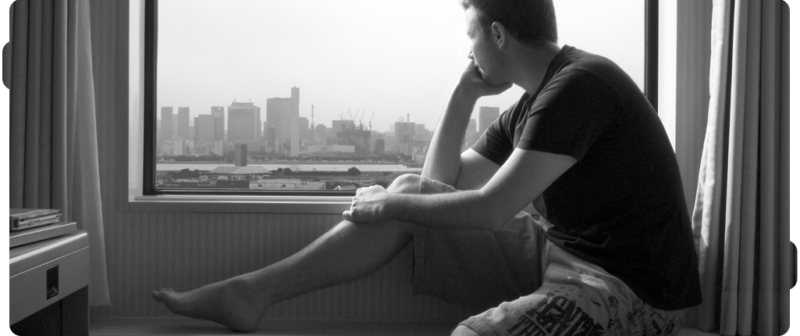By Nicole K. //
“There are three things that people tend to confuse: depression, grief and sadness.” – Andrew Solomon, author of The Noonday Demon: An Atlas of Depression
There is a significant difference between clinical depression (a.k.a Major Depressive Disorder or Unipolar Depression), and the emotion of sadness.
Grief and sadness are natural responses to negative events, such as the death of a loved one, job loss, divorce, terminal illness. Daily functioning is not impeded as a person reconciles with these events.
Depression, however, is a persistent sense of sadness with an undercurrent of grief that happens even in the context of positive events, such as getting married, going on vacation, graduation, job promotion, house moving and relocating, or even having a baby.
The effects of depression are debilitating to the extent that daily functioning is impossible.
Depression is common.
So common that it is known as the “common cold” in the world of mental health. To date, the World Health Organization estimates 350 million sufferers of depression worldwide; 65 times the total population of Singapore.
Being common doesn’t make it any less serious. In fact, that makes understanding depression even more pertinent.
Depression is fatal.
Statistically, more men than women succeed in suicide attempts, numbering a total of 422 suicide deaths in Singapore in 2013 – that means:
More than one person dies from suicide each day.
One life lost is one life too many.
Sufferers may also engage in self-harm, a percentage of which end in accidental death. If you or a loved one has expressed thoughts of self-harm or dying, please read this important note on how to help, by Samaritans of Singapore.
Depression is not a choice
Just as how cancer runs in families, depression has its roots in our inherited biology causing one to be predisposed to the illness.
Choice implies a sense of will and decision. However depression is an illness that requires treatment and cannot be “willed” out of. Well-meaning, but otherwise futile, advice like “snap out of it” is not only impossible, it is also an unreasonable demand.
Depression is not a choice, but recovery is.
The best way to help the sufferer would be to patiently encourage him/her towards making that decision of getting well. More importantly, the sufferer has to come to terms with the fact that they are in need help.
Depression has its inroads
The illness can lay dormant until it is triggered when the conditions are right. Genetic predispositions, neurochemical imbalances, significant life events, temperament, environment all play a part. It may take a single devastating event, or a combination of factors occurring within the same period to spark an episode of clinical depression.
Depression has many pathways to recovery
Just as there are many “causes” of depression, coping and recovery require a multi-prong strategy.
A combination of coping strategies can go a long way in keeping depression at bay: medication, counselling, vocational/occupational therapy, self-help material, religious faith, social support, work environment, exercise, diet, sleep and maintaining a well-balanced routine.
Clinical symptoms of Major Depressive Disorder
If you have five or more of the following symptoms which have persisted for more than two weeks, you may be suffering from clinical depression. Please consult your GP or call a counselling helpline.
– Lethargy/fatigue
– Recurring thoughts of self-harm and death
– Low energy or mood
– Uncontrollable bouts of crying
– Excessive sleep or loss of sleep
– Loss of appetite
– Sudden weight loss/weight gain
– Loss of interest or pleasure in all or most activities
– Inability to function in daily living activities
– Inability to meet social/work commitments
– Poor concentration or memory
– Irritability, agitation or psychomotor retardation noticed by others
– Feelings of guilt and anger
Don’t wait until it’s too late. Get help and get well today.
Do you know what it’s like to suffer from depression? Share your story with us at thetapestryproject(dot)sg(at)gmail(dot)com
References:
http://www.samaritans.org.sg/National-Statistics.pdf
http://www.singstat.gov.sg/publications/publications_and_papers/population_and_population_structure/population2013.pdf
http://www.ncbi.nlm.nih.gov/books/NBK64063/
Image Source: harmless.org.uk
Nicole is the founding editor of The Tapestry Project SG, a social movement and online publication that champions first-person narratives to inspire hope, dignity, and empathy.


3 responses to “Depression: The Facts Beyond Sadness”
Quite an informative collection of stats you have there. Always keen to stay up to date on these things. Thanks.
Hi vonzex, thanks for leaving a comment! Always glad for positive feedback from our readers 🙂
Reblogged this on .